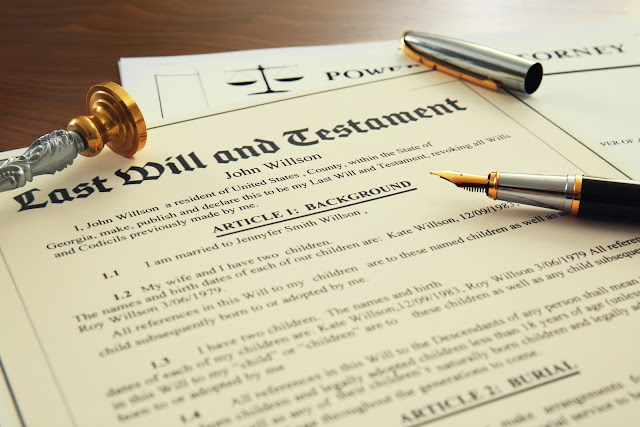Incorporating charitable giving into your estate plan is a
meaningful way to support causes you care about while potentially receiving tax
benefits. By carefully planning your donations, you can leave a lasting legacy
that aligns with your values and financial goals. Here’s how you can
effectively integrate charitable giving into your estate plan.
Understanding
Charitable Giving in Estate Planning
Charitable giving in estate planning involves designating a
portion of your assets to charitable organizations through your will or trust.
This process ensures that your generosity continues even after you are gone. To
start, it is crucial to consult with an estate planning attorney who can guide you through the legal and financial aspects of your plan.
Key
Considerations for Charitable Giving
Choosing
the Right Charities
Select organizations that resonate with your personal values
and have a track record of effectively using donations. Researching their
financial health, longevity and impact can help ensure that your contributions
will be used effectively.
Types
of Charitable Gifts
●
Outright Bequests: Specify a fixed amount or a
percentage of your estate to a charity.
●
Residual Bequests: Donate the remainder of your
estate after all other bequests and expenses are paid.
●
Charitable Trusts: Establish a trust that
provides income to beneficiaries for a period, after which the remainder goes
to charity.
● Donor-Advised Funds: Contribute to a fund and recommend
grants to charities over time.
Tax
Implications
Charitable donations can reduce estate taxes, providing
financial benefits to your heirs. Consult a probate law firm to understand the
tax implications and ensure compliance with state and federal laws.
Working with
Professionals
Estate
Planning Attorney
An estate planning attorney is essential for drafting your
will or trust documents, and can help incorporate charitable giving clauses
that reflect your wishes clearly and legally.
Probate
Law Firm
Engaging a probate law firm can ensure that your estate
is administered according to your plan. They can manage the probate process and
address any legal challenges that may arise.
Attorney
for Will Preparation
A specialized attorney for will
preparation can help structure your will to include charitable donations. They
ensure that your directives are clear and legally binding, minimizing potential
disputes among beneficiaries.
Local
Legal Experts
Working with lawyers in West Chester, PA can provide you with
localized knowledge and expertise. They can help navigate state-specific
regulations and ensure that your estate plan complies with local laws.
Structuring
Your Estate Plan for Charitable Giving
Drafting
the Will
Clearly outline your charitable intentions in your will.
Specify the amount or percentage of your estate that you wish to donate and
identify the beneficiary organizations. This precision helps prevent
misunderstandings and legal disputes.
Setting
Up Trusts
Charitable trusts, such as a Charitable Remainder Trust (CRT)
or Charitable Lead Trust (CLT), can provide income to beneficiaries during
their lifetimes, with the remaining assets going to charity. These trusts offer
tax benefits and ensure long-term support for your chosen causes.
Reviewing
and Updating Your Plan
Regularly review your estate plan to ensure it reflects your
current wishes and financial situation. Life changes such as marriage, divorce,
or changes in financial status can impact your charitable giving plans. Keeping
your plan up-to-date ensures your legacy aligns with your evolving goals.
Benefits of
Charitable Giving in Your Estate Plan
Charitable giving not only supports causes you care about,
but also offers significant benefits to your estate and heirs. These benefits
include:
●
Tax Deductions: Reduce the taxable value of
your estate, potentially lowering estate taxes.
●
Legacy Preservation: Leave a lasting impact on
the community and causes you support.
● Family Values: Instill a tradition of philanthropy in your family,
encouraging future generations to give back.
Ready to Start?
Contact Us Today for a complimentary
consultation to discuss how you can incorporate charitable giving into your
estate plan, and get started on creating a legacy that reflects your values and
supports the causes you care about.
This blog was originally posted on https://pa4law.com/how-to-incorporate-charitable-giving-into-your-estate-plan/























